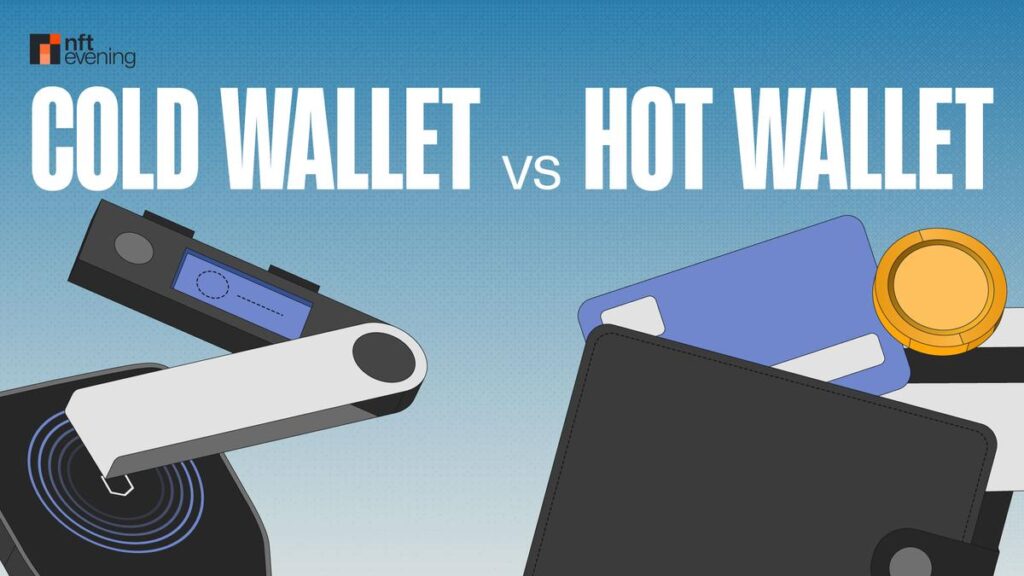Cold Wallet vs Hot Wallet: What’s the Distinction?
In the ever-changing world of cryptocurrencies, one thing remains constant – the security of your digital assets. It’s essential to understand the difference between cold wallet vs. hot wallet. These are the two basic types of digital wallets, each with its own advantages and disadvantages. When asking yourself how cryptocurrency hot wallets are different from cold wallets, you need to consider several factors besides usability. Knowing the difference should help you determine what type of wallet you need for specific purposes.
The following detailed guide will provide an overview of how crypto wallets function, how they differ, a comparison of their value factors, and which one is best suited for your needs. We’ll help you understand when, why, and where you should use one over the other.
What Are Crypto Wallets?
The simplest definition of a crypto wallet is a virtual or digital alternative to a physical wallet. However, crypto wallets don’t work like physical wallets; they store the keys needed to access a blockchain network to manage your cryptocurrency. Your digital assets remain on the blockchain network, and the keys in your crypto wallet enable you to safeguard or transfer the tokens as needed.
Public keys allow users to receive crypto transactions, while private keys help decrypt the encrypted message and must be kept secret. These keys act as proof of ownership of the cryptocurrencies and authorize crypto transactions. Crypto wallets secure these keys, ensuring the safety of your digital assets.
What Is a Hot Wallet?
Hot wallets are types of crypto wallets that maintain internet connectivity and come in forms like web, mobile, and exchange wallets. They are ideal for fast transactions and easy access. Hot wallets are user-friendly, integrate with exchanges, and facilitate quick transactions. They are accessible online and compatible with different devices.
How Do Hot Wallets Work?
Hot storage wallets operate via internet connectivity to store private keys and manage digital assets. They enable real-time transaction management, integration with exchanges, and access to DApps and DeFi platforms.
Types of Hot Wallets
Hot wallets can be free or paid, specific to certain cryptocurrencies, or exchange-based. Each type offers various features and security levels to suit different users’ needs.
Pros and Cons of Hot Wallets
Hot wallets offer ease of use, convenience, fast transactions, and multi-platform compatibility. However, they may have compatibility limitations, security risks, lack of control, and may not be suitable for long-term storage or large asset holdings.
What Is a Cold Wallet?
A cold storage wallet, also known as a hardware wallet, is considered safer than hot wallets as it stores private keys offline. Cold wallets are ideal for long-term storage and offer enhanced security against online threats.
How Do Cold Wallets Work?
Cold wallets keep private keys offline to prevent remote hacking attempts. They provide an extra layer of security and are suitable for users interested in securing large amounts of crypto assets.
Types of Cold Wallets
Hardware wallets, paper wallets, crypto vaults, steel wallets, and offline software wallets are common types of cold wallets. Each type offers unique features to ensure the safety of digital assets.
Pros and Cons of Cold Wallets
Cold wallets provide superior security, protection from internet threats, long-term storage, and physical control of assets. However, they may be challenging to access, risk physical loss, and require technical knowledge for setup and use.
How Are Cryptocurrency Hot Wallets Different from Cold Wallets?
Hot wallets are best for payments and day trading, while cold wallets are suitable for long-term holding. Hot wallets are mostly free, easy to use, and vulnerable to cyber threats. In contrast, cold wallets are secure, offline, and less vulnerable to hacking incidents.
How To Choose Between Hot And Cold Wallets
Consider the purpose of holding crypto, ease of use, and security concerns when choosing between a hot and cold wallet. Assess the features, costs, and usability of each type to determine which suits your needs best.
Conclusion: Which Wallet is Better?
The choice between a cold wallet and a hot wallet depends on your investment goals, security preferences, and usage patterns. Balancing convenience and security, and understanding the pros and cons of each type, can help you make an informed decision.


